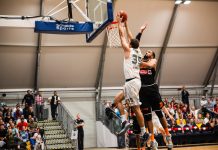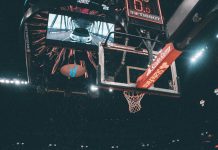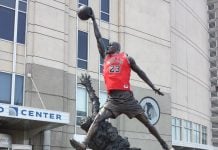
As a basketball scouting and former NBA special adviser, I have seen firsthand the impact of media availability on a player’s reputation and success in the league. The recent incidents involving Ja Morant and Dillon Brooks skipping media availability after their loss to the Los Angeles Lakers remind me of a pressing issue in the league that needs to be addressed: the relationship between NBA players and the media.
Over the past few years, certain NBA players have demonstrated their frustration and disdain towards the media, with stars like Russell Westbrook and Kevin Durant famously refusing to answer questions or calling out journalists at press conferences. While some level of tension between athletes and the media is expected in any sport, the recent defiance seen in the NBA is trending in the wrong direction and becoming viewed as acceptable by certain players.
As someone who has worked in the sports media world and been responsible for interviewing athletes, I can sympathize with what the media goes through. Sometimes athletes can make it difficult to get the sound bites that we need to finish our stories. However, my message to these NBA players is the following: Please stop disrespecting the media. You need them as much as they need you.
The reality is that the fans are the ones who provide the financial support necessary for the NBA to exist, and they give players their popularity. Fans make players like Kevin Durant household names. If you have no fans who are willing to watch your games, then there is no business model, no league, and no jobs playing professional basketball. And how do the fans learn about players and their thoughts on the game or free agency? Through the media.
The media serves as the intermediary between the players and the fans. The media creates buzz around players, promotes their accomplishments, and provides fans with access to their favorite players’ insights. Therefore, players who consistently miss media availability are likely to see a decrease in their endorsement deals, overall popularity, and market value.
It’s important to remember that the media also plays a significant role in creating the value that makes these endorsement deals attractive to brands. The media creates exposure for players, generates buzz around their accomplishments, and helps mold their brand image. For example, when I report back to sponsors, every time the sponsor is mentioned or appears on social media, online editorial articles, or TV features, it’s considered value. This is accomplished through an array of tools and reporting methods over weeks or even months, but that’s the gist of it.
It’s also important to note that there is a clear line that needs to be drawn between player privacy and media availability. The idea of a locker room media scrum, as is typical in professional sports in the USA, is a gross invasion of privacy in my opinion. Media should be restricted to press conferences or designated engagements, not disturbing naked players as they come out of the shower. However, players who refuse to engage with the media may also be perceived as unprofessional and selfish, which can lead to negative perceptions from fans and media members.
In conclusion, as someone who has worked in the NBA for many years, I can say with confidence that missing media availability can have a negative impact on a player’s reputation, marketability, and success in the league. NBA players need to understand that their success as athletes is intertwined with their public image and the media’s coverage of their games. Therefore, players should be respectful to the media and understand the importance of engaging with their fans and sponsors through media availability.

















